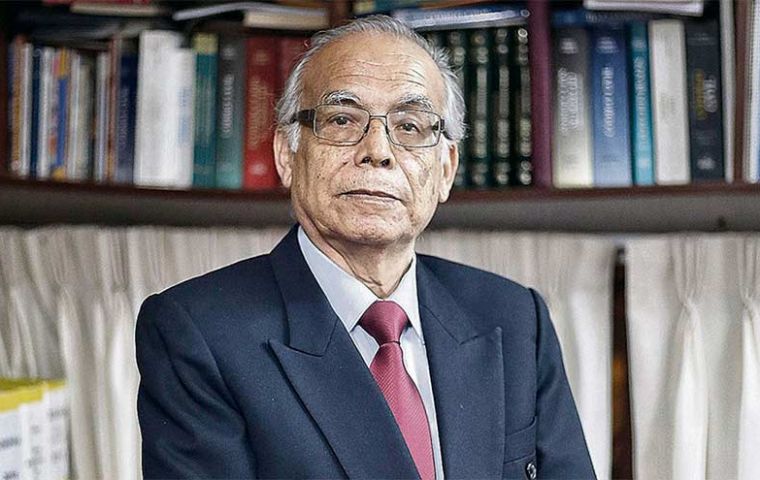MercoPress. South Atlantic News Agency
Peru's Prime Minister Torres resigns
 Some legislators considered Torres was not the only minister who needed to leave
Some legislators considered Torres was not the only minister who needed to leave Anibal Torres submitted his letter of resignation late Thursday as president of the Council of Ministers (also referred to as Prime Minister) after eight months on the post following Congress' decision not to support him in a motion of confidence voting.
Torres was sworn in last February 8 to replace Héctor Valer Pinto and thus become the fourth person to hold that position under President Pedro Castillo Terrones.
Torres' successor was to be announced shortly, according to Lima press reports. Labor Minister Alejandro Salas was one of the main candidates, the sources said.
The departing official had requested Congress' vote, which some lawmakers considered unnecessary. But after the Parliament's stance became known, he was pushed to step aside, while some legislators considered Torres was not the only minister who needed to leave.
“The question of confidence presented by the Executive is about an ordinary law that can perfectly be repealed by Congress and does not imply constitutional reform, therefore, the question of confidence proceeds and the Executive must take it as denied and prepare the new cabinet,” former Prime Minister Guido Bellido said on Twitter.
This vote of confidence was intended to gauge Congress's approval regarding a bill to repeal Law 31399 on the restrictions to calls for referendums.
Parliament Speaker José Williams said that such a mechanism should “comply with constitutional and legal requirements in force in our rule of law” and specified that the flat rejection was approved by the majority of the Board of Directors.
“The Board of Directors has agreed by majority to reject outright the question of confidence raised by the President of the Council of Ministers, since it is a matter of prohibited ways to raise a question of confidence, as established by the Constitutional Court. Likewise, we have urged the Council of Ministers to scrupulously respect the constitutional and legal parameters for the presentation of the question of confidence,” Williams said.
“It is evident that what Minister Torres has proposed exceeds the constitutional and legal framework because it ignores the competencies of Congress as holder of the fiduciary relationship between the Executive and the Legislative and, consequently, represents a serious alteration to the constitutional rule of law and the separation of powers,” he added.




Top Comments
Disclaimer & comment rulesCommenting for this story is now closed.
If you have a Facebook account, become a fan and comment on our Facebook Page!